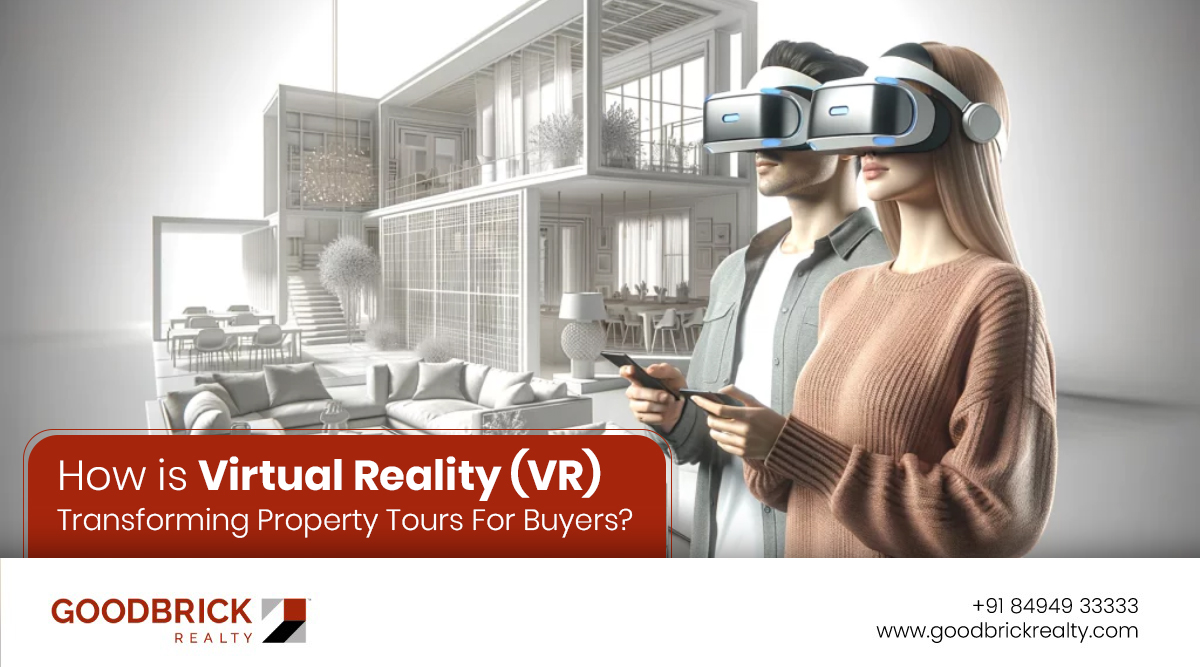
In today’s era, Virtual Reality is set to transform how properties are showcased. As technology advances, VR will offer an immersive experience for exploring various properties. The real estate technology will also instill a sense of personal connection while viewing the property virtually. So, read through to know more about virtual reality real estate.
Whenever individuals need to view a property, Virtual Reality can help them to view it remotely. Once they use a compatible device, they can view each room along with the floor plan. Through the VR property tour, they can also get an idea about the surrounding region. Hence, the 3D property tours offer a detailed way to assess the space. In those instances, the homebuyer doesn’t have to be physically present to visit the property. The technology allows them to view the property conveniently in different ways.
Leveraging Virtual Reality can certainly be beneficial for investors and buyers. Let’s check the benefits one after the other.
Saves time & offers convenience
By opting for VR property tours, buyers can explore diverse properties. This saves considerable time as individuals can view the properties from the comfort of their homes. Instead of visiting every location in person, the technology will lead them through several properties virtually. Later, they can make decisions faster and quite efficiently.
Enhanced Visualization
Through an immersive experience, virtual reality real estate sector offers a clear understanding of the property. Even if the property is under construction, real estate developers can introduce decor ideas. This helps prospective buyers to check out how the property will appear ahead of time.
Offers More Property Options
With VR, buyers and investors can easily view diverse properties. They can view the properties easily even when they are located in different cities. This technique helps to observe properties that would otherwise have been tough to visit.
Provides Detailed Information
VR property tours often include additional details such as floor plans and dimensions. The real estate technology can also offer the ability to modify certain aspects of the property. Such a type of data enhances the buyer’s understanding. He can also envision how the property will appear in case he plans to renovate it in future.
Eventually, virtual home tours will serve to be cost-effective for real estate investors. If the property is located at a distance away from the city, then it can eliminate the need for travelling. Multiple investment opportunities can also be evaluated without any financial burden. By adjusting the lighting and moving across rooms, VR can also increase engagement.
Even when the technology has made significant strides in the sector, it has some challenges.
High Initial Setup Costs
When you wish to implement VR, you need to invest in hardware. On the other hand, you have to purchase software that can present a 3D model. Additionally, you have to bear ongoing expenses to ensure that the technology is updated.
Lack of Sensory Experience
While VR offers a spatial experience, it can’t replicate actual inspection. For instance, when the buyer is viewing a property, he will not be aware of the textures of surfaces. He will also not be aware of the comfort of resting inside a room with ambient light all around. Structural integrity of property can also not be gauged through VR. This can instill uncertainty in the minds of individuals.
Reliance on Technology
When individuals rely on the real estate technology, the personal touch is lost. On the other hand, the homebuyer may not be able to experience the atmosphere. He may then prefer visiting the location physically. He may also need to interact with the real estate agent. This interaction will help to answer the questions that he has in his mind.
Security & Privacy Concerns
VR platforms usually gather a lot of personal data. This can include the individual’s preferences and the virtual movements. So, in case the data is not managed properly, then it can be misused. Real estate agents may also misrepresent properties during the 3D property tours.
Towards the end, high-speed internet is required for a smooth VR experience. This can impact the tour when the internet connection is poor. Conducting virtual tours in rural areas can also be impossible owing to poor internet infrastructure.
Finally, it seems that VR will dominate in the sector. This is because the market is growing at a rate of 9.28% since 2024. By the year 2029, the market is also predicted to reach a value of US$ 136.3 million.But, high setup expenses can make it hard to adopt VR in real estate. Limited access to the hardware will also lead real estate agents to think twice before considering VR. Challenges like digital literacy in smaller cities can also hinder the adoption of virtual reality real estate.
If you wish to settle inside a house that epitomizes luxury, then connect with Goodbrick Realty today. While we create spaces meticulously, our team ensures utmost comfort and style.